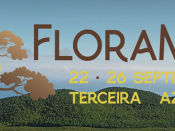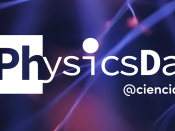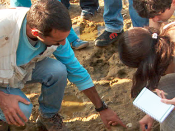Por Santiago González Gaitán (Instituto de Astrofísica e Ciências do Espaço, CIÊNCIAS ULisboa).
Dust is ubiquitous in the Universe and affects the observations of many astronomical sources. The study of dust extinction and reddening towards supernovae and their host galaxies touches upon a wide range of topics: supernova progenitors and their explosions, local and global interstellar medium properties in galaxies, and systematic biases in supernova cosmology affecting the measurement of the Hubble constant and of the dark energy equation of state. I present the efforts and results of our group in constraining dust extinction, for which we use a multi-faceted set of observational strategies including integral-field spectroscopy and extended polarimetry of supernova host galaxies, compared to theoretical models from radiative transfer simulations; all this tied together with innovative machine learning techniques.























